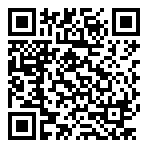ONLINE SEMINAR Childhood traumas
Emotional trauma can be compared to a tangle that develops at a specific point in time when we endure something deeply distressing. When our mind struggles to make sense of the pain, we become trapped in that moment, and a mental framework emerges within us. This framework is a set of thoughts and actions we adopt as a shield to avoid experiencing that same hurt again. These behavioral patterns, or schemas, can manifest in various ways… Feeling isolated, as though no one truly values you. Steering clear of intimate connections and withdrawing from others, while simultaneously battling feelings of loneliness and worthlessness. Becoming overly dependent on a partner, haunted by the dread of abandonment. Continuously burying your emotions and pain until they accumulate, resulting in a profound indifference to life. Harboring mistrust toward others, assuming deceit is commonplace, and maintaining emotional distance. Evading confrontations and sacrificing your own desires and beliefs. Depending heavily on others’ judgments, doubting your own instincts, and living in fear of errors. Perpetually feeling ashamed, believing you fall short, and struggling to embrace who you are. Feeling superior to those around you. Endlessly battling sadness and helplessness, convinced that nothing is within your control and change is impossible. Living with incessant anxiety that disaster looms on the horizon. Shying away from happiness, fearing that any moment of joy will inevitably be snatched away. Punishing yourself and holding the belief that those who fail to embody the ideal of a “good person” deserve punishment. These patterns often stem from unmet needs in childhood, from experiences of neglect, harsh criticism, overprotection, rejection, or any form of emotional wounding. Whether these needs are fulfilled or ignored shapes our self-perception and worldview. Over time, this framework becomes ingrained, and we find ourselves unable to imagine living differently. Consequently, we repeatedly find ourselves in situations that evoke the same emotions, where mistreatment persists, or where we fail to attain what we yearn for most. This is the essence of trauma—it molds our reality. However, it doesn’t have to define your entire life. Healing is possible. By recognizing your own schemas and understanding the origins of specific emotions and their influence on your behavior, you empower yourself to decide if these responses serve you. If they don’t, you can transform them. As old habits dissolve, we pave the way for new behaviors that forge an entirely different path forward.
**1h 35min Video***
Upon purchasing the course, you will receive an email containing the course link and password.



